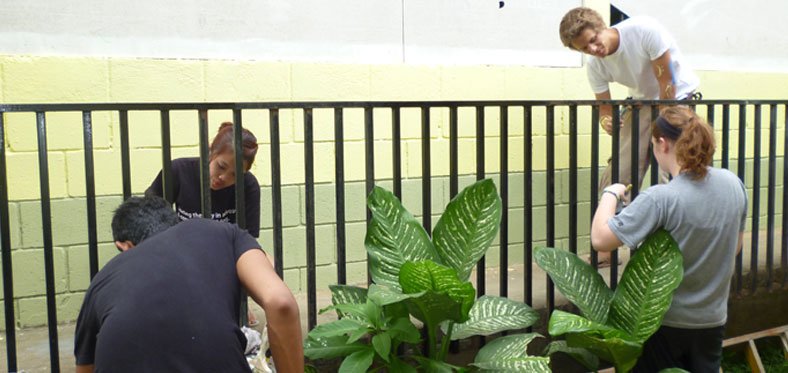Environmental Conservation
- Home
- >
- Volunteer Abroad
- >
- Volunteer In Costa Rica
- >
- Environmental Conservation
Environmental Conservation

Project Summary
This project aims to create environmental awareness and active stewardship through our conservation of the environment and the protection of wild animals, exotic animals and companion animals through environmental education to our volunteers. Working together with the community and the responsible government entities. In an effort to progress environmental education, volunteers will participant in a variety of aspects of this project such as reforestation of flora species that benefit the wild animals which inhabit the jungle, creation of organic gardens, tours for recognition of wild species and studying the behavior of animals in the wild. Collaboration with local organizations to protect the green turtle “lora” and cleaning of local beaches are also part of the education program.
It is essential for future generations to understand the importance of environmental conservation and natural resources management. We consider the education of local schools crucial to this goal. It is part of the project’s core mission to educate and actively involve the youth and community in areas of conservation and education. Participants will do this by conducting workshops and activities for children and their families from schools in the region. They will also help to develop and improve an Environmental Education Program consisting of a yearlong curriculum of modules based on the different conservation projects and natural resource management projects currently in place. We have also made site visits to several schools where we have conduct participatory workshops and field trips. Volunteers will have the opportunity to be part of the workshops, prepare materials, make crafts, conduct and work with children of the schools during the workshops. The objective of the Butterfly Garden project is the investigation of native species of butterflies (Siproeta stelenes, Caligo memnon, Heraclides thoas, Dryas iulia), and all aspects of their reproductive cycle and plant foods.
Skills/Qualifications Needed
Beginner to intermediate knowledge of Spanish is preferred (but not mandatory). If a participant cannot speak Spanish, we recommend enrolling in our Spanish language program. Participants should study Spanish vocabulary related to classrooms and teaching before arrival. Educational skills are helpful in this field. There are no specific qualifications needed to join this participant project in Costa Rica. All participants are expected to be open-minded, flexible, patient, and to possess a passion and love for the participant service they are providing. Participants must have an intermediate to advanced grasp of the English language.
Participant Roles and Responsibilities
Participate in environmental education workshops, where members of the local community visit the garden and volunteers help to conduct educational tours and classes. Volunteers can also help to develop workshops for local schools. Additional responsibilities include data collection, plant care and marking, reforestation efforts, creation of organic gardens and sustainable agriculture, tours for recognition of wild species and studying the behavior of animals in the wild, and cleaning of local beaches. Volunteers might also have the opportunity to be part of the workshops, prepare materials, make crafts, conduct and work with children of the schools during the workshops.
Accommodation/Food/Supervision
Participants have the option to either stay with well-screened host families or at our headquarters depending mainly on availability and preference. Should participants have a preference, they should let our in-country coordinator know as soon as possible-in their application. We try to accommodate preferences. Host Families are well-screened and offer participants a shared bathroom, private bedroom, electricity, and running water. Headquarters housing offers participants shared bathrooms, hostel-style bedrooms, electricity, running water, and WiF. Participants receive three light traditional meals per day at either accommodations..


 Toll Free: 1-800-675-2504 ( USA )
Toll Free: 1-800-675-2504 ( USA ) Email: info@ifrevolunteers.org
Email: info@ifrevolunteers.org






 Apply Now
Apply Now